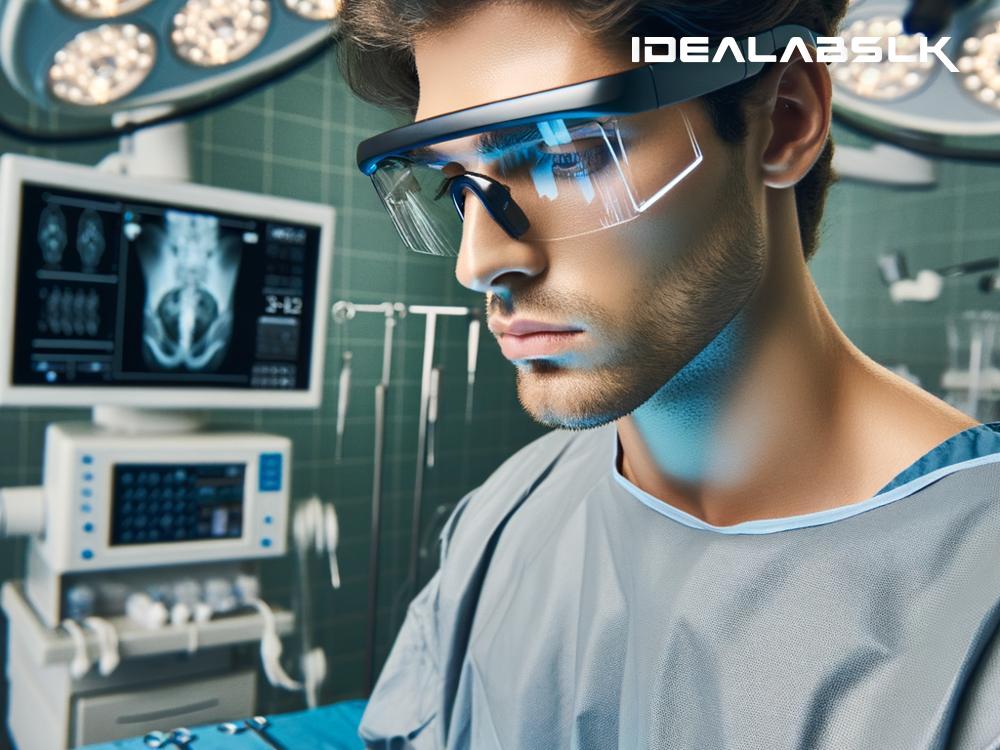How Smart Glasses are Changing the Game in Healthcare: From Operation Rooms to Daily Patient Care
In recent years, smart glasses have jumped from the pages of sci-fi novels straight into the real world, bringing transformative changes in various sectors, including the healthcare industry. But what exactly are smart glasses? Imagine a pair of glasses, but instead of just correcting your vision, they can display information, translate speech, guide you through complex tasks, and even let you share what you're seeing with others in real-time. Pretty amazing, right? That’s the world of smart glasses for you!
Now, let's dive into how these futuristic devices are revolutionizing healthcare, from assisting surgeons in the operation room to enhancing patient monitoring and care.
A New Vision in Surgery
Imagine being a surgeon and having the ability to see vital patient information or 3D models of the organ you're operating on, right in your line of sight while performing surgery. This isn't a scene from a sci-fi movie; it's the reality of today's surgeries, thanks to smart glasses. Surgeons no longer have to take their eyes off their patient to look at monitors; essential data is displayed directly in their field of vision. This not only saves valuable time but also significantly reduces the risk of errors, making surgeries safer for patients.
Moreover, smart glasses offer the ability for remote assistance. Specialists from around the world can 'see' exactly what the surgeon sees and provide advice in real-time, making even the most complex surgeries a bit less daunting.
Training Tomorrow's Healthcare Professionals
Training in the healthcare sector is crucial, and it's another area where smart glasses shine brightly. Medical students can benefit from augmented reality (AR) experiences that allow them to virtually dissect or examine parts of the human body in great detail without the need for real cadavers. They can also simulate surgeries, giving them a hands-on experience in a controlled, risk-free environment.
But perhaps one of the most exciting applications is the ability for students to 'shadow' experienced surgeons through smart glasses. They can see exactly what the surgeon sees during a procedure, making it an invaluable learning tool.
Enhanced Patient Monitoring and Care
Patient care and monitoring outside the operation room have also seen significant improvements, thanks to smart glasses. Nurses and doctors can access patient records, monitor vital signs, and receive alerts about patient needs or changes in their condition, all without having to use their hands. This is incredibly helpful in emergency situations or in Intensive Care Units (ICUs) where time and efficiency can save lives.
Additionally, for patients with chronic conditions or those in rehabilitation, smart glasses can guide them through exercises, remind them to take their medication, and even allow healthcare providers to monitor their progress remotely. This not only improves the quality of care but also empowers patients to take an active role in their own healthcare journey.
Breaking Barriers in Patient-Doctor Communication
Effective communication is key in healthcare, and smart glasses are playing a pivotal role in breaking down language barriers. Real-time translation features help healthcare professionals communicate with patients who speak different languages, ensuring that the patient understands their treatment plan, medication instructions, and more. This fosters trust and improves the overall patient experience.
The Road Ahead
While the adoption of smart glasses in healthcare is growing, it’s not without challenges. Concerns around privacy, data security, and the need for robust infrastructure to support these technologies are being addressed. Despite these hurdles, the potential benefits for patient care, surgical outcomes, and medical education are undeniable.
The integration of smart glasses into the healthcare industry is just beginning. As technology advances, we can expect even more innovative applications to emerge, further transforming healthcare delivery. The future of healthcare is not only smarter but also more connected, efficient, and patient-centered, thanks to the revolutionary impact of smart glasses.
In conclusion, smart glasses are more than just an exciting technological advancement; they are a tool with the power to revolutionize the healthcare industry. From providing crucial assistance in surgeries and enhancing medical training to improving patient care and communication, the possibilities are boundless. As we continue to explore and expand their uses, one thing is clear: smart glasses are reshaping the healthcare landscape in ways we could have only imagined a few years ago, and this is just the beginning.

